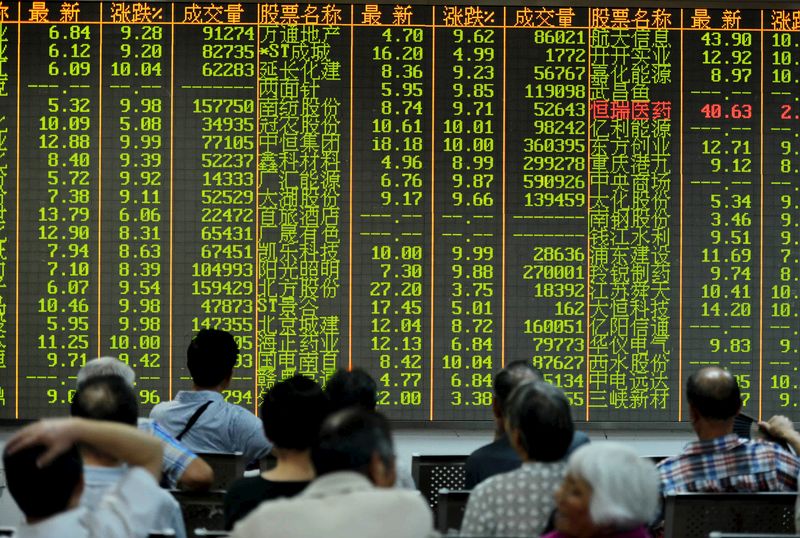Investing.com-- Chinese stocks saw a strong recovery in the first quarter of 2024 amid some improvements in the economy and earnings, Goldman Sachs (NYSE:GS) analysts said in a recent note.
This recovery sparked speculation over whether Chinese markets were due for more gains in the coming months. While there are still risks, Goldman Sachs analysts said that prioritizing alpha sectors in the Chinese market was likely to yield better returns.
Pick tech and internet stocks, shareholder returns in China
Goldman Sachs analysts said that from a sectoral perspective, they preferred services stocks in China due to a relatively better growth environment, capital expenditures and cost disciplines.
To this end, the bank is overweight on consumer technology and internet stocks.
Goldman Sachs analysts also said that they would focus more on stocks providing shareholder returns, given that dividends and buybacks surged to record highs through 2023 as Chinese companies sought to placate investors.
Goldman Sachs sees mainland stocks- on the Shanghai Composite and SZSE Component indexes- with a 12% potential upside over the next 12 months, while Hong Kong stocks- specifically on the Hang Seng index are due for an 8% potential gain.
Stocks with a buy rating from the investment bank, which are also expected to clock peer-bearing revenue growth, include Kuaishou Technology (HK:1024), Shenzhen Transsion Holdings Co Ltd (SS:688036), BYD Electronic International Co Ltd (HK:0285) and Zto Express Cayman Inc (HK:2057).
The bias towards Alpha should stay in place until investors have more information on China’s plans for medium-term policy, specifically stimulus measures.
“Coast is far from clear,” tail risks still in play
Goldman Sachs analysts said that while the overall market risk/reward appeared balanced, there were still some risks in play, particularly those that could dry up support for Chinese equities.
Slowing second-quarter economic growth could stem momentum in equities, while profit expectations for Chinese stocks also appeared optimistic in the face of sluggish macro conditions.
Worsening relations between the U.S. and China could also trigger more volatility in regional markets, especially in the lead-up to the U.S. Presidential Election.
Higher-for-longer U.S. interest rates, especially in the face of sticky inflation, are also expected to weigh on broader emerging markets, including China.
